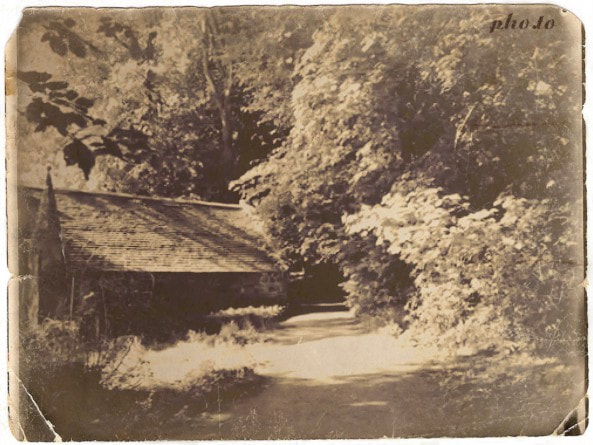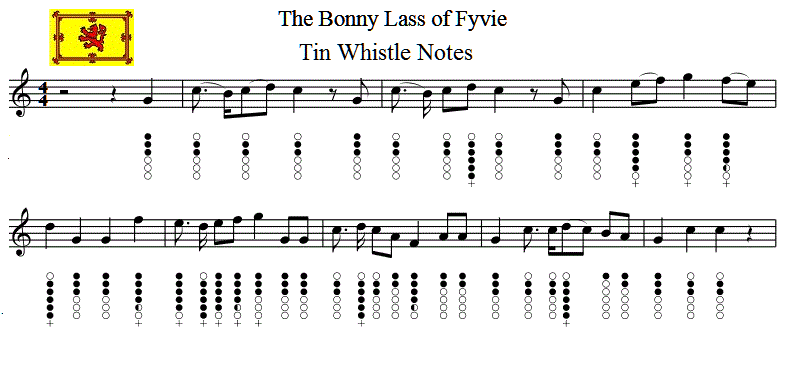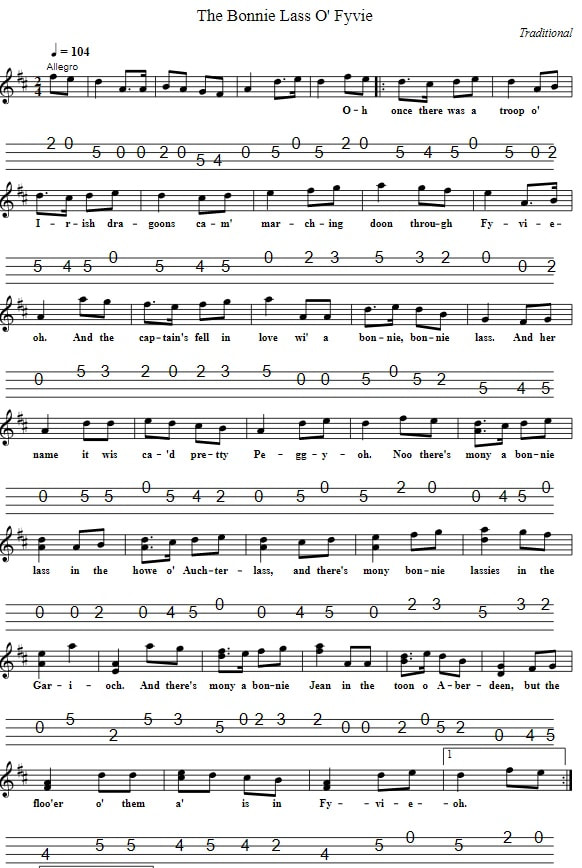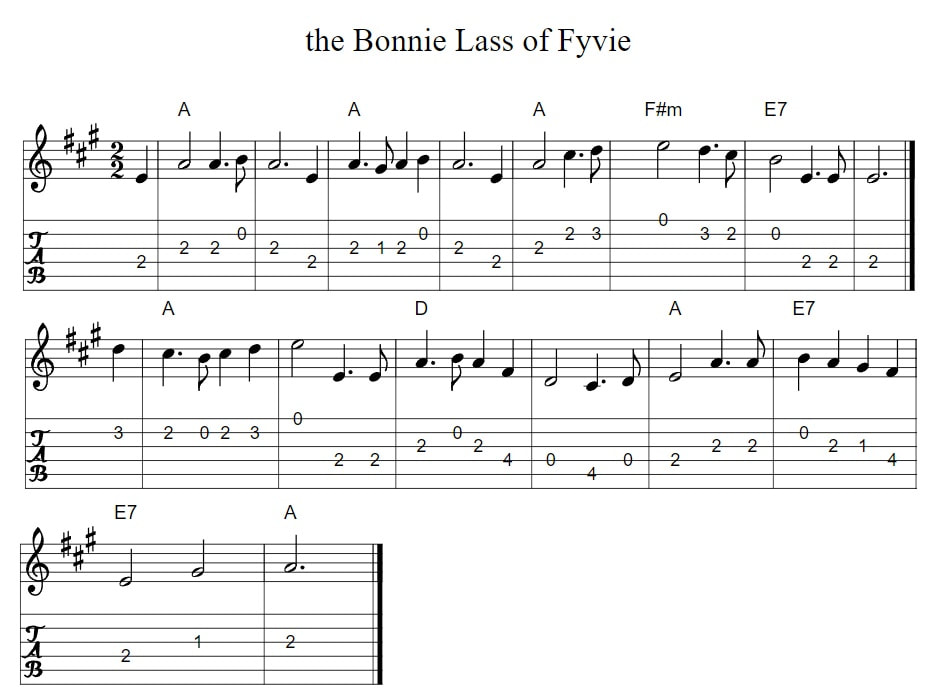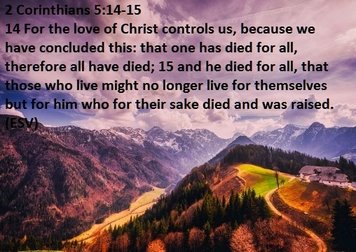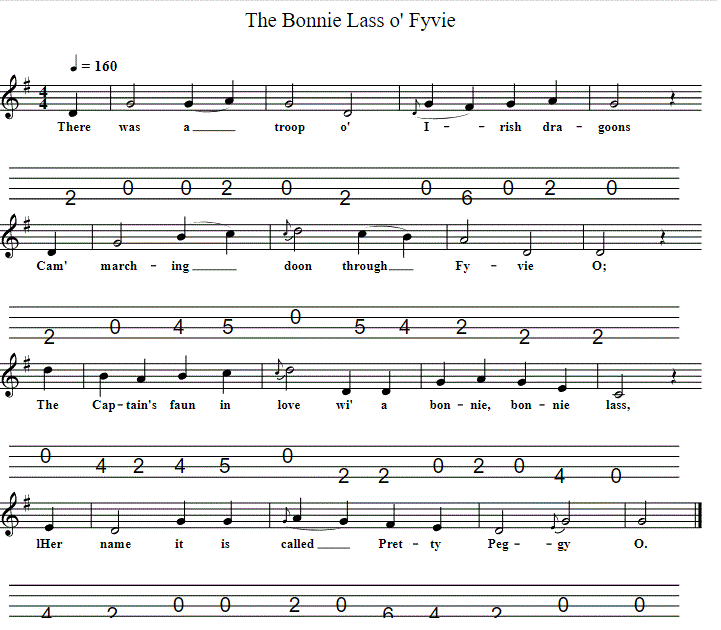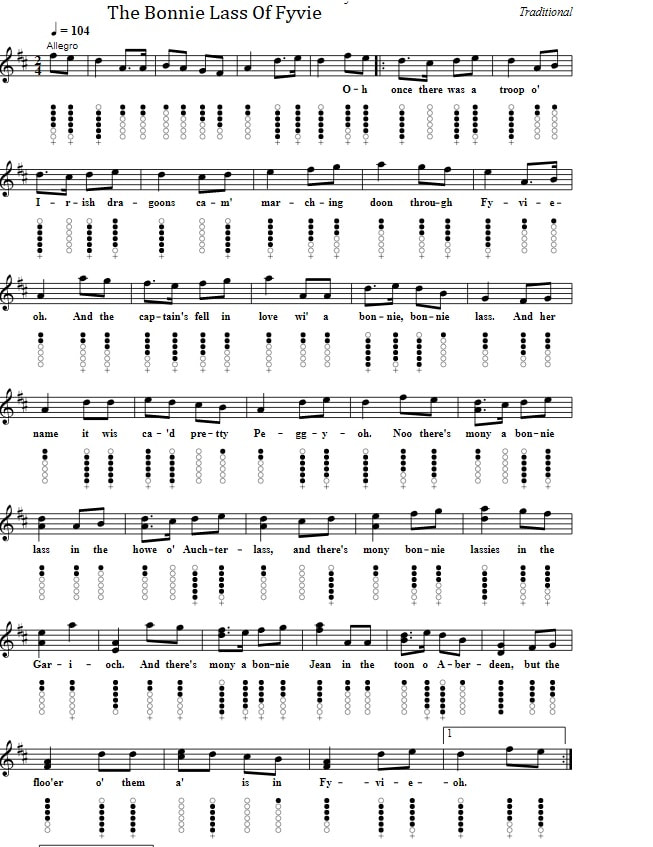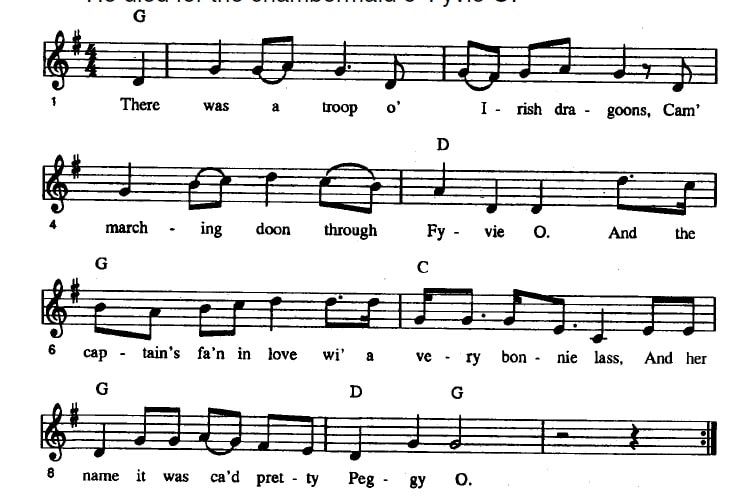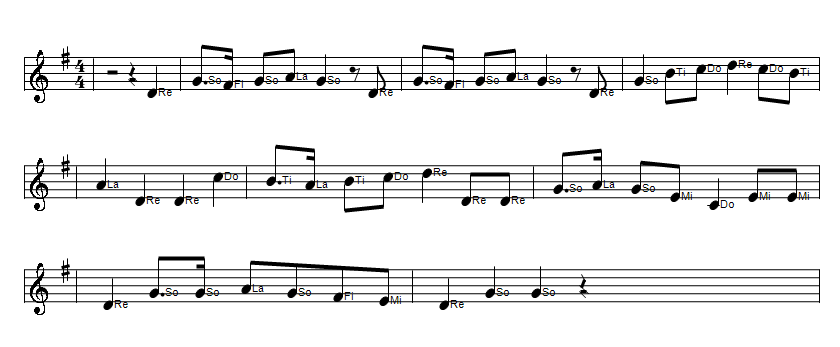The Bonnie Lass Of Fyvie Guitar Chords And Lyrics By The Corries
A traditional Scottish song, also recorded by The Dubliners. Bonnie Lass of Fyvie tenor guitar tab in CGDAadded. The video reminds me of what Folk music is really all about, two lads sitting by the fireside and teling the stories of bygone days. The sheet music and tin whistle notes are included. This is an easy three chord song.
Here's the list of Corries songs on the site .The bonnie lass of Fyvie sheet music notes in solfege [ Do re mi ] style now added plus the mandolin tab and tin whistle notes..
Here's the list of Corries songs on the site .The bonnie lass of Fyvie sheet music notes in solfege [ Do re mi ] style now added plus the mandolin tab and tin whistle notes..
The Bonnie Lass of Fyvie is a traditional Scottish folk song that has captured the hearts of people for centuries. It tells the story of a young soldier who falls in love with a beautiful woman in the town of Fyvie, Scotland. The song has been passed down through generations, with different versions and interpretations, but the essence of the story remains the same. This thesis will explore the history and significance of The Bonnie Lass of Fyvie, examining its lyrics, melodies, and impact on Scottish culture.
The origins of The Bonnie Lass of Fyvie can be traced back to the 18th century, although the exact date and author of the song are unknown. It is believed to have originated in Aberdeenshire, Scotland, and was first recorded in the 19th century by folklorist and collector, Francis James Child. The song has also been included in several Scottish song collections, such as The Scots Musical Museum and The Grieg-Duncan Folk Song Collection.
The lyrics of the song depict a young soldier who is stationed in the town of Fyvie, Scotland. He falls in love with a local woman, who is described as being fair and bonnie. Despite his love for her, the soldier must leave Fyvie and return to his duties. The woman promises to wait for him, but when he returns, he finds she has married someone else. Heartbroken, he leaves Fyvie and vows never to return. The song ends with the soldier reminiscing about his lost love and the beauty of the town of Fyvie.
The lyrics of The Bonnie Lass of Fyvie not only tell a love story but also give a glimpse into the life and culture of 18th century Scotland. The song reflects the tradition of Scottish ballads, which often revolve around themes of love, loss, and longing. It also highlights the importance of honor and duty in Scottish society, as the soldier must leave his love to fulfill his duties as a soldier.
The melody of The Bonnie Lass of Fyvie is hauntingly beautiful and has been described as one of the most recognizable Scottish folk melodies. The song is typically sung in a slow and melancholic tone, which adds to the emotional impact of the lyrics. The melody has been adapted and used in various other songs, such as the Irish song 'The Wearing of the Green' and the American Civil War song 'The Bonnie Blue Flag.'
The Bonnie Lass of Fyvie has had a significant impact on Scottish culture, both in Scotland and abroad. The song has been performed and recorded by numerous artists, including Scottish folk singer Jean Redpath and renowned Scottish singer Annie Lennox. It has also been featured in films, such as Disney's Brave and in the popular TV series Outlander, which has helped to introduce the song to a wider audience.
The song has also been used as a symbol of Scottish identity, as it is often played at Scottish events and gatherings, such as weddings and Burns Night celebrations. The melancholic nature of the song has also made it a popular choice for funerals and memorial services, evoking a sense of nostalgia and longing for loved ones.
In conclusion, The Bonnie Lass of Fyvie is a timeless Scottish folk song that has stood the test of time. Its beautiful melody and poignant lyrics have captured the hearts of people for centuries, making it a beloved part of Scottish culture. The song's enduring popularity and cultural significance only serve to solidify its place as a treasured piece of Scottish heritage.
The origins of The Bonnie Lass of Fyvie can be traced back to the 18th century, although the exact date and author of the song are unknown. It is believed to have originated in Aberdeenshire, Scotland, and was first recorded in the 19th century by folklorist and collector, Francis James Child. The song has also been included in several Scottish song collections, such as The Scots Musical Museum and The Grieg-Duncan Folk Song Collection.
The lyrics of the song depict a young soldier who is stationed in the town of Fyvie, Scotland. He falls in love with a local woman, who is described as being fair and bonnie. Despite his love for her, the soldier must leave Fyvie and return to his duties. The woman promises to wait for him, but when he returns, he finds she has married someone else. Heartbroken, he leaves Fyvie and vows never to return. The song ends with the soldier reminiscing about his lost love and the beauty of the town of Fyvie.
The lyrics of The Bonnie Lass of Fyvie not only tell a love story but also give a glimpse into the life and culture of 18th century Scotland. The song reflects the tradition of Scottish ballads, which often revolve around themes of love, loss, and longing. It also highlights the importance of honor and duty in Scottish society, as the soldier must leave his love to fulfill his duties as a soldier.
The melody of The Bonnie Lass of Fyvie is hauntingly beautiful and has been described as one of the most recognizable Scottish folk melodies. The song is typically sung in a slow and melancholic tone, which adds to the emotional impact of the lyrics. The melody has been adapted and used in various other songs, such as the Irish song 'The Wearing of the Green' and the American Civil War song 'The Bonnie Blue Flag.'
The Bonnie Lass of Fyvie has had a significant impact on Scottish culture, both in Scotland and abroad. The song has been performed and recorded by numerous artists, including Scottish folk singer Jean Redpath and renowned Scottish singer Annie Lennox. It has also been featured in films, such as Disney's Brave and in the popular TV series Outlander, which has helped to introduce the song to a wider audience.
The song has also been used as a symbol of Scottish identity, as it is often played at Scottish events and gatherings, such as weddings and Burns Night celebrations. The melancholic nature of the song has also made it a popular choice for funerals and memorial services, evoking a sense of nostalgia and longing for loved ones.
In conclusion, The Bonnie Lass of Fyvie is a timeless Scottish folk song that has stood the test of time. Its beautiful melody and poignant lyrics have captured the hearts of people for centuries, making it a beloved part of Scottish culture. The song's enduring popularity and cultural significance only serve to solidify its place as a treasured piece of Scottish heritage.
|
[A]There once was a troop of Irish dragoons
Come marching down thru [E]Fyvie-O And the [A]captain fell in love wi' a very bonnie [D]lass And he called her by [A]name, [E]pretty [A]Peggy-O There's many a bonnie lass in the glen of Auchterlass There's many a bonnie lass in Gairioch-oO There's many a bonnie Jean in the streets of Aberdeen But the flower of them all lives in Fyvie, O Come trippin' down the stair, Pretty Peggy, my dear Come down the stairs, Pretty Peggy-O Come trippin' down the stairs, combin' back your yellow hair Bid a long farewell to your mammy-O It's braw, aye it's braw, a captain's lady for to be And it's braw to be a captain's lady-O It's braw to ride around and to follow the camp And to ride when your captain he is ready-O O I'll give you ribbons, love, and I'll give you rings I'll give you a necklace of amber-O I'll give you a silken petticoat with flounces to the knee If you'll convey me doon to your chamber-O What would your mother think if she heard the guineas clink And saw the haut-boys marching all before you-O O little would she think gin she heard the guineas clink If I followed a soldier laddie-O I never did intend a soldier's lady for to be A soldier shall never enjoy me-O I never did intend to gae tae a foreign land And I will never marry a soldier-O I'll drink nae more o your claret wine I'll drink nae more o your glasses-O Tomorrow is the day when we maun ride away So farewell tae your Fyvie lasses-O The colonel he cried, mount, boys, mount, boys, mount The captain, he cried, tarry-O O tarry yet a while, just another day or twa Til I see if the bonnie lass will marry-O Twas in the early morning, when we marched awa And O but the captain he was sorry-O The drums they did beat on the merry braes o' Gight And the band played the bonnie lass of Fyvie-O Long ere we came to the glen of Auchterlass We had our captain to carry-O And long ere we won into the streets of Aberdeen We had our captain to bury-O Green grow the birks on bonnie Ethanside And low lie the lowlands of Fyvie-O The captain's name was Ned and he died for a maid He died for the bonny lass of Fyvie-O Here are the guitar chords for the key of G.
[G]There once was a troop of Irish dragoons Come marching down thru [D]Fyvie-O And the [G]captain fell in love wi' a very bonnie [C]lass And he called her by [G]name, [D]pretty [G]Peggy-O |
|
Sheet Music And Tin Whistle Notes For The Bonny Lass Of Fyvie
Standard tuning guitar tab with chords
Bonnie Lass of Fyvie tenor guitar tab in CGDA below
The bonnie lass of Fyvie sheet music notes in Solfege [ Do Re Mi ] format.
